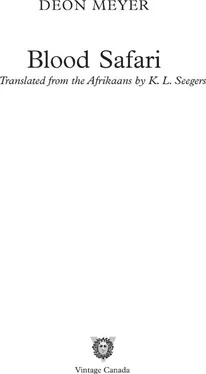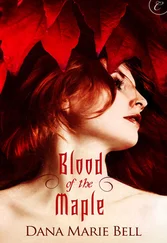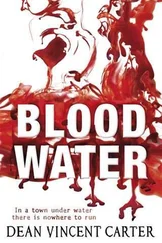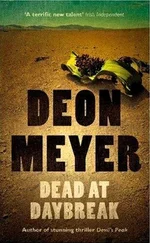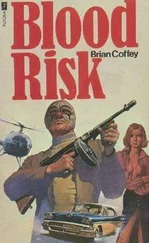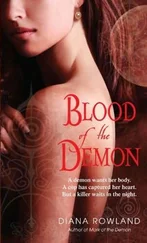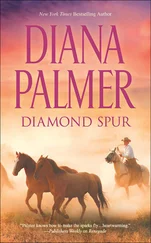Deon Meyer - Blood Safari
Здесь есть возможность читать онлайн «Deon Meyer - Blood Safari» весь текст электронной книги совершенно бесплатно (целиком полную версию без сокращений). В некоторых случаях можно слушать аудио, скачать через торрент в формате fb2 и присутствует краткое содержание. Жанр: Старинная литература, на английском языке. Описание произведения, (предисловие) а так же отзывы посетителей доступны на портале библиотеки ЛибКат.
- Название:Blood Safari
- Автор:
- Жанр:
- Год:неизвестен
- ISBN:нет данных
- Рейтинг книги:4 / 5. Голосов: 1
-
Избранное:Добавить в избранное
- Отзывы:
-
Ваша оценка:
- 80
- 1
- 2
- 3
- 4
- 5
Blood Safari: краткое содержание, описание и аннотация
Предлагаем к чтению аннотацию, описание, краткое содержание или предисловие (зависит от того, что написал сам автор книги «Blood Safari»). Если вы не нашли необходимую информацию о книге — напишите в комментариях, мы постараемся отыскать её.
In Blood Safari
A complicated man with a dishonorable past, Lemmer just wants to do his job and avoid getting personally involved. But as he and Emma search for answers from the rural police, they encounter racial and political tensions, greed, corruption, and violence unlike anything they have ever known.
Blood Safari — читать онлайн бесплатно полную книгу (весь текст) целиком
Ниже представлен текст книги, разбитый по страницам. Система сохранения места последней прочитанной страницы, позволяет с удобством читать онлайн бесплатно книгу «Blood Safari», без необходимости каждый раз заново искать на чём Вы остановились. Поставьте закладку, и сможете в любой момент перейти на страницу, на которой закончили чтение.
Интервал:
Закладка:
The Bateleur suite was understated luxury, but all Emma did was nod in satisfaction as if it more or less lived up to her standards. The black porter (Benjamin. Hospitality Assistant) carried in our travel bags. Emma pushed a green banknote into his hand and said, ‘That’s fine, just leave them here.’
He showed us the secrets of the air conditioning and the minibar. When he left Emma said, ‘Shall I take this one?’ and pointed at the bedroom to the left of the sitting room. It was furnished with a double bed.
‘That’s fine.’
I took my bag to the other room, on the right, two single beds with the same creamy white linen as Emma’s. Then I took stock. The wood frame windows could be opened, but were kept closed because of the whispering air conditioning. Every bedroom and the sitting-cum-bar-room in the centre had a sliding door on to the veranda at the front. The locking mechanism was unsophisticated, not good security. I opened it and walked out on to the veranda. It had a polished stone floor, two couches and chairs in ostrich leather, two mounted binoculars and a view of the waterhole, now deserted apart from a flock of pigeons that drank restlessly.
I walked around the building. Three metres of lawn, then the bush. Designed and situated for privacy. Not a single other unit, each named for some kind of eagle, was visible. Bad news from a bodyguard’s perspective.
In theory, however, if anyone wanted to get at Emma, they would have to avoid the main gate, scale two metres of game fence and walk seven kilometres through the veld in lion and elephant country. Not much ground for worry.
I went back in; the cool was refreshing. Emma’s door was shut; I could hear the whisper of a shower. For a brief moment, I visualised her body under the stream of water, then went to seek out the cold water in my own bathroom.
7
We walked in twilight to the Mohlolobe’s Honey Buzzard Restaurant. Emma seemed a little down. She had been quiet at dinner the previous night in Hermanus. Maybe she wasn’t a night person, or perhaps it was the heat.
While we sat in candlelight at the table she said, ‘You must be very hungry, Lemmer.’
‘I could eat’
A waiter brought menus and the wine list. ‘Sometimes I forget about food,’ she said.
She passed me the wine list. ‘You’re welcome to have wine.’
‘No, thanks.’
She studied the menu for a long time and without enthusiasm. ‘Just a salad, a Greek salad,’ she told the waiter. I ordered a bottle of mineral water for the price of a small car – and the beef fillet with green pepper sauce and mashed potato. We looked around at the other people in the room, middle-aged foreigners in groups of two or four. Emma tugged the white linen serviette out of its imitation ivory ring. She twirled the ring round and round in her delicate fingers, examining the fine leaf pattern engraved on it.
‘I’m sorry about earlier …’ she said, looking up. ‘When I saw the impala …’
I remembered the moment when she had put her hand over her mouth.
She turned her attention back to the ring in her hand. ‘We had a game farm in the Waterberg. My dad …’
She took a deep breath and exhaled slowly, trying to gain control over the emotion behind the words.
‘Not a big farm, only three thousand hectares, just a piece of land with some buck so we could go there on weekends. My dad said it was for us, for his children, so we wouldn’t be total city kids. So we would know what klits grass is. Jacobus was never in the house when we were on the farm. He would sleep outdoors and walk and just live outside … He always had two or three friends there, but in the late afternoon when the sun went down he would come and fetch me. I must have been nine or ten; he was nearly out of school. He would go walking with his little sister. He knew where to find the buck. All the little herds. He would ask me, what do you want to see, sis, what buck? Then he would teach me about them, what their habits were, what they did. And the birds, I had to learn all their names. It was fun, but I always felt a little bit guilty because I wasn’t like him. It was like he only came alive when he was on the farm. I didn’t always feel like going to the farm, not every weekend and every holiday …’
She went quiet again until our food came. I tackled the steak with a passion. She pushed her lettuce around restlessly with her fork, and then put it down.
‘My dad … for him the worst thing was that they never found Jacobus. Maybe it would have been better for him if there had been a … a body. Something …’
She lifted the serviette from her lap and pressed it to her mouth. ‘He sold the farm. When there was no more hope. He never talked to us about it; he just came home one day and said the farm has been… it was the first time … today, when I saw the buck. It was the first time since then, since Jacobus died.’
I didn’t say anything. My expressions of sympathy had never been reliable. I just sat there, aware that I wasn’t especially privileged. I was merely the only available ear.
Emma picked up the serviette ring again. ‘I … Last night I was thinking maybe I’m making a big mistake, maybe I so badly want to have something of Jacobus somewhere that I can’t judge this impartially. How can I be sure it isn’t my own emotion and longing? I miss them, Lemmer. I miss them as people and I miss them as ideas. My brother and mother and father. Everybody needs a family. And I wonder, did I come here searching for that? Did the man on TV really look like Jacobus? I can’t be sure. But I can’t just … that phone call … if you asked me now what the man said, what I definitely heard? That’s what you need a father for, to ask him, “Dad, is this the right thing?”’
My plate was empty. I put down the knife and fork in relief. Now I didn’t have to feel guilt that the food was good and I was enjoying it while she struggled with her emotions. But I couldn’t answer her question. So I said, ‘Your father …’ Just a little encouragement.
She enclosed the ring with her hand, lost in thought. Finally, she looked up at me and said, ‘He was the son of a stoker.’
A waiter took my plate away and she pushed her salad towards him and said, ‘I’m sorry, the salad is great. It’s just my appetite.’
‘Not a problem, madam. Would you like to see the dessert menu?’
‘You should have some, Lemmer.’
‘No thanks, I’ve had plenty.’
‘Coffee? Liqueur?’
We declined. I hoped Emma was ready to leave. She put the serviette ring down where her plate had been and rested her elbows on the table. ‘It seems as if everyone has forgotten how poor so many Afrikaners were. My grandmother made a vegetable garden in the backyard and my grandfather kept a chicken coop between the railway lines. It wasn’t allowed, but there was no other space on the property. Those little railway houses in Bloemfontein …’
So she related the family history, the rags-to-riches saga of Johannes Petrus le Roux. I suspected it was the telling of a familiar story, one she had heard many times over as a wide-eyed child. It was a way for her to touch the cornerstone of her lost family, to redefine herself and this investigation in the immediate present.
Her father had been the second-oldest of five children, a large family that placed heavy demands on the salary of a stoker. At fifteen there had been no option, he had to go to work. For the first year he laboured as a general dogsbody at the giant SA Railways sheds in Bloemfontein’s East End, within walking distance of hi parents’ modest home between the sidings. At the end of each week he would hand over the envelope with his meagre earnings to his mother. Every evening he would rinse out his single work shirt and hang it in front of the coal stove to dry. At sixteen he began his apprenticeship as a fitter and turner, the area of his interest.
Читать дальшеИнтервал:
Закладка:
Похожие книги на «Blood Safari»
Представляем Вашему вниманию похожие книги на «Blood Safari» списком для выбора. Мы отобрали схожую по названию и смыслу литературу в надежде предоставить читателям больше вариантов отыскать новые, интересные, ещё непрочитанные произведения.
Обсуждение, отзывы о книге «Blood Safari» и просто собственные мнения читателей. Оставьте ваши комментарии, напишите, что Вы думаете о произведении, его смысле или главных героях. Укажите что конкретно понравилось, а что нет, и почему Вы так считаете.
